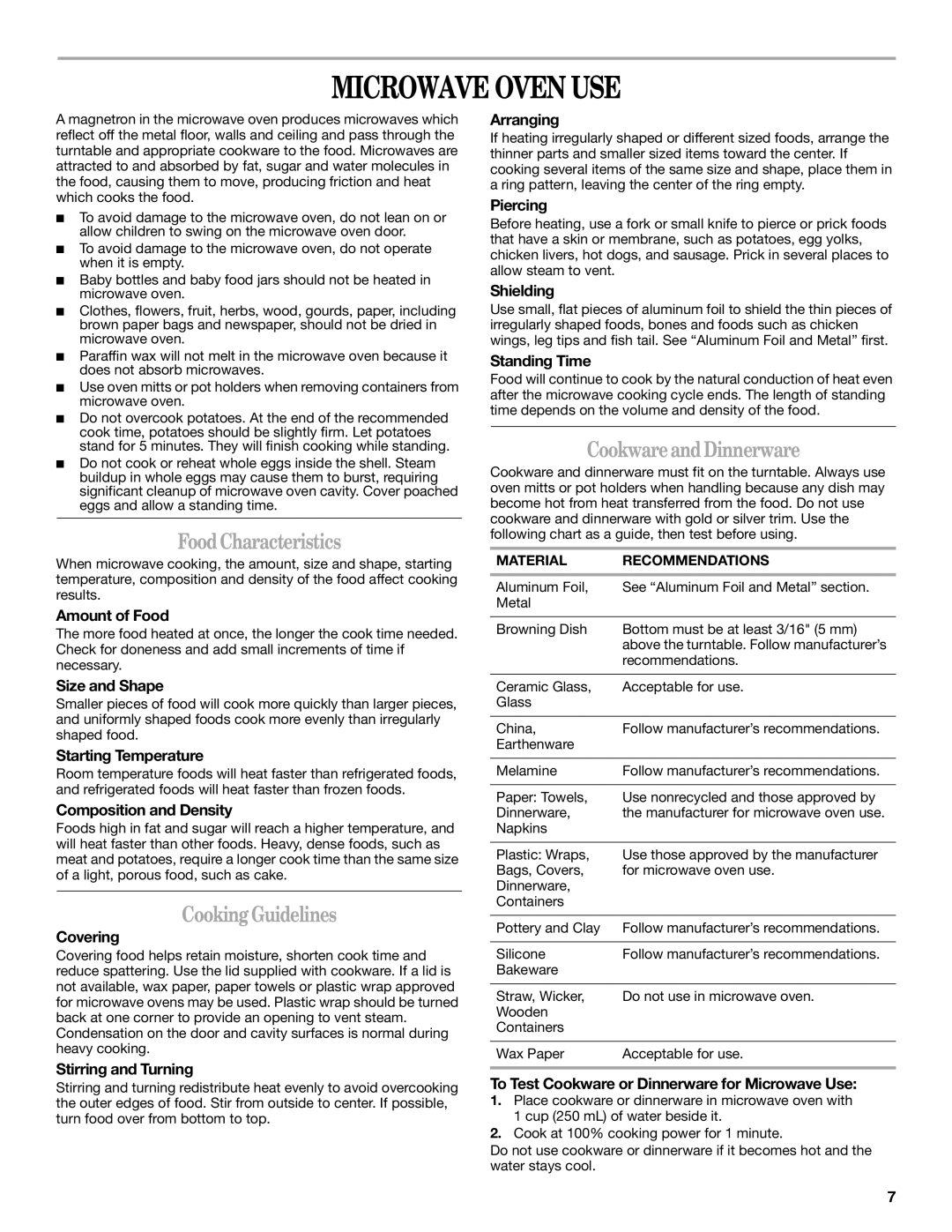W10178097 specifications
The Whirlpool W10178097 is a versatile and efficient appliance that caters to modern kitchen needs and enhances user convenience. This product is primarily identified as a refrigerator water filter, designed to purify drinking water and improve the taste of beverages and meals prepared with filtered water.One of the key features of the W10178097 filter is its advanced filtration technology. It utilizes activated carbon and a multi-stage filtration process to reduce impurities, including chlorine, lead, sediment, and other contaminants. This ensures that the water dispensed from the refrigerator tastes fresh and clean. The filter is designed to retain essential minerals that contribute to the flavor of drinking water, making it a great choice for households looking to maintain a healthy lifestyle.
The W10178097 filter also boasts an easy installation process, allowing users to quickly replace the old filter without requiring any special tools. Its simple twist-and-lock design ensures a secure fit, reducing the risk of leaks and maintaining optimal performance. Users can effortlessly check the filter's status, as it often comes with an indicator light or an easily accessible replacement reminder, helping to ensure that the water remains clean at all times.
Another characteristic that sets the W10178097 apart is its compatibility with a range of Whirlpool refrigerator models. This makes it a convenient choice for many households, as it can be used easily within different appliance setups without needing various filter types. Moreover, the W10178097 is generally NSF-certified, meaning it meets strict public health and safety standards, providing users with confidence in their water quality.
The durability of the W10178097 water filter is another crucial aspect, as it typically has a lifespan of approximately six months. This longevity makes it a cost-effective solution for families seeking cleaner drinking water. Regular maintenance and timely replacements ensure that the water filter continues to perform effectively, giving users peace of mind regarding their water consumption.
In summary, the Whirlpool W10178097 is an essential refrigerator water filter that combines advanced filtration technology, user-friendly installation, and broad compatibility with various Whirlpool models. Its ability to significantly improve the quality and taste of drinking water makes it a valuable addition to any kitchen, ensuring that families enjoy fresh and clean water at all times.

